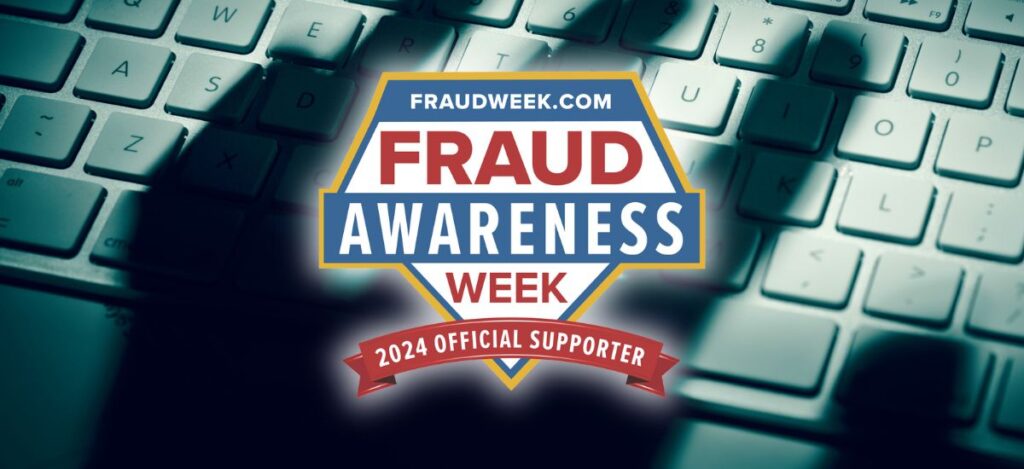Fraud is increasingly pervasive, particularly in the online space where anonymity and global reach offer fraudsters more opportunities and less accountability. That’s why International Fraud Awareness Week, recognized every November, draws hundreds of organizations to pledge to raise awareness. Keep reading to learn more about what fraud is — and why you should be aware of it.
What Is Fraud?
According to the Association of Certified Fraud Examiners (ACFE), which hosts Fraud Week, fraud is “any activity that relies on deception in order to achieve a gain.” Fraud veers into the territory of criminal activity when someone commits fraud for material gain to the detriment of another.
There are hundreds of types of fraud, and the targets can vary too: consumers, corporations, and even the government can be victims of fraud. ACFE generally focuses on occupational fraud, which refers to fraud that is committed by an organization's employees.
What Is Payments Fraud?
Payments fraud refers to any fraudulent activity that involves the unauthorized use of payment instruments or systems for financial gain. This can include unauthorized transactions, stolen credit card information, identity theft, and other deceptive practices aimed at manipulating the payment process for personal or financial gain. Depending on the type of fraud, the targets can be payments companies or consumers.
Different Forms of Fraud in Payments
LegitScript and its partners most commonly seek to mitigate specific forms of fraud, including but not limited to payments fraud, merchant fraud, and consumer fraud. Different from illicit behavior within an organization, these types of fraud focus on payment transactions and interactions between sellers and buyers.
- Merchant Fraud: Merchant fraud occurs when a fraudulent merchant exploits vulnerabilities in the payment system to deceive consumers or financial institutions. This can include providing falsified merchant account information, selling illicit products on hidden web pages, or engaging in other deceptive practices to obtain payment information or for financial gain.
- Transaction Laundering: A subset of merchant fraud is transaction laundering, also known as factoring or undisclosed aggregation, which involves the processing of payments through a legitimate merchant account on behalf of an illicit merchant. Usually the underwritten merchant is a shell that is under the control of the illicit merchant.
- Consumer Fraud: Consumer fraud refers to fraudulent activities that target consumers, such as identity theft, phishing scams, nondelivery schemes, the sale of counterfeit products, or the sale of products making misleading claims.
The Rising Threat of Fraud in Payments
With the rapid growth of e-commerce and online transactions, payments fraud has become a major concern for businesses and consumers alike. According to recent data released by the Federal Trade Commission (FTC), consumers reported losing nearly $8.8 billion to fraud in 2022, a staggering increase of more than 30% from the previous year. Investment scams accounted for the highest reported loss amount, followed by imposter scams.
Fraud Awareness Week: A Dedicated Time to Raise Awareness
International Fraud Awareness Week, established in 2000, serves as a dedicated time to raise awareness about fraud and promote anti-fraud education. This year’s week-long campaign, November 12 to 18, encourages businesses and individuals to proactively take steps to minimize the impact of fraud by increasing awareness and implementing preventive measures.
The fight against fraud doesn't end with Fraud Week. Any business conducting or facilitating payment transactions must remain vigilant year-round to protect themselves and their stakeholders from the risks of payments fraud. Regularly scheduled anti-fraud awareness training, evaluation of fraud risk and policies, and clear communication of anti-fraud measures to employees are crucial in deterring fraudulent activities.
Do Your Part: Take Our Free Course on Transaction Laundering
Join LegitScript in honoring International Fraud Awareness Week with an exclusive webinar — Transaction Laundering: Best Practices for Detection and Mitigation.
Learn to identify and combat this threat with insights on:
- Recognizing transaction laundering red flags
- Load balancing through networks
- Strategies used to acquire and maintain merchant accounts
- Analyzing face value websites and network mapping
- And more.




